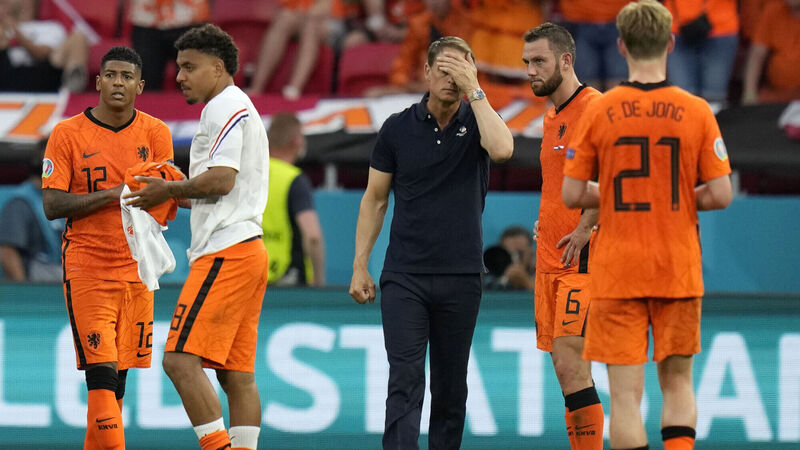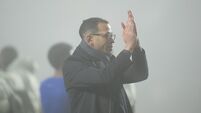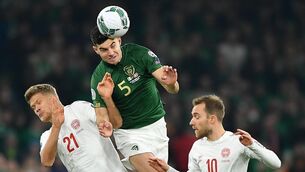Daniel Storey: Forget the Euro 2020 group stages - it’s how you finish that counts

Netherlands' manager Frank de Boer holds his head after the match at the Ferenc Puskas stadium in Budapest. (AP Photo/Darko Bandic, Pool)
There was criticism of England’s second-half performance against the Czech Republic in their final group match, but it seems misplaced now after the latter’s display against the Dutch on Sunday evening. The Czechs grew into the match and were rampant after Matthijs de Ligt’s red card.









